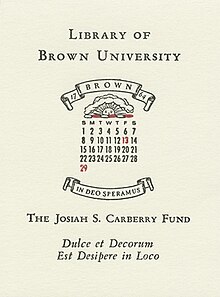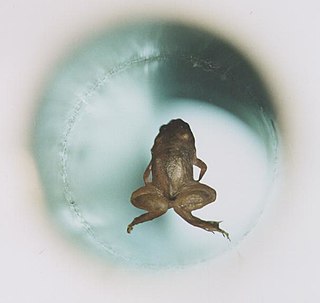
The Ig Nobel Prize is a satiric prize awarded annually since 1991 to celebrate ten unusual or trivial achievements in scientific research. Its aim is to "honor achievements that first make people laugh, and then make them think." The name of the award is a pun on the Nobel Prize, which it parodies, and on the word ignoble.

In metaphysics, ontology is the philosophical study of being. It investigates what types of entities exist, how they are grouped into categories, and how they are related to one another on the most fundamental level. Ontologists often try to determine what the categories or highest kinds are and how they form a system of categories that encompasses the classification of all entities. Commonly proposed categories include substances, properties, relations, states of affairs, and events. These categories are characterized by fundamental ontological concepts, including particularity and universality, abstractness and concreteness, or possibility and necessity. Of special interest is the concept of ontological dependence, which determines whether the entities of a category exist on the most fundamental level. Disagreements within ontology are often about whether entities belonging to a certain category exist and, if so, how they are related to other entities.
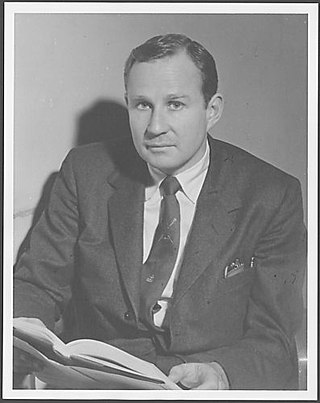
Wilfrid Stalker Sellars was an American philosopher and prominent developer of critical realism, who "revolutionized both the content and the method of philosophy in the United States".

John Jamieson Carswell Smart was a British-Australian philosopher who was appointed as an Emeritus Professor by the Australian National University. He worked in the fields of metaphysics, philosophy of science, philosophy of mind, philosophy of religion, and political philosophy. He wrote several entries for the Stanford Encyclopedia of Philosophy.
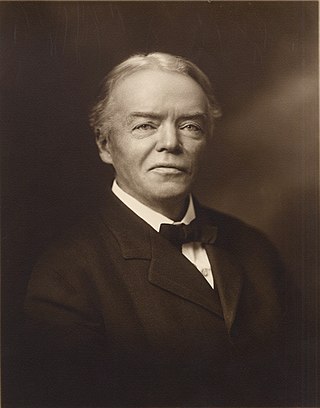
Josiah Royce was an American Pragmatist and objective idealist philosopher and the founder of American idealism. His philosophical ideas included his joining of pragmatism and idealism, his philosophy of loyalty, and his defense of absolutism.

William Ernest Hocking was an American idealist philosopher at Harvard University. He continued the work of his philosophical teacher Josiah Royce in revising idealism to integrate and fit into empiricism, naturalism and pragmatism. He said that metaphysics has to make inductions from experience: "That which does not work is not true." His major field of study was the philosophy of religion, but his 22 books included discussions of philosophy and human rights, world politics, freedom of the press, the philosophical psychology of human nature; education; and more. In 1958 he served as president of the Metaphysical Society of America. He led a highly influential study of missions in mainline Protestant churches in 1932. His "Laymen's Inquiry" recommended a greater emphasis on education and social welfare, transfer of power to local groups, less reliance on evangelizing and conversion, and a much more respectful appreciation for local religions.
John Elof Boodin was a Swedish-born American philosopher and educator. He was the author of numerous books proposing a systematic interpretation of nature. Boodin's work preserved the tradition of philosophical idealism within the framework of contemporary science. Boodin also focused on the social nature of human behavior believing an understanding required an appreciation of individual participation in social life and interpersonal relationship.

Robert Merrihew Adams is an American analytic philosopher, specializing in metaphysics, philosophy of religion, ethics, and the history of early modern philosophy.
Robert Culp Stalnaker is an American philosopher who is Laurance S. Rockefeller Professor Emeritus of Philosophy at the Massachusetts Institute of Technology. He is a Fellow of the American Academy of Arts and Sciences and a Corresponding Fellow of the British Academy.
Ernest Sosa is an American philosopher primarily interested in epistemology. Since 2007 he has been Board of Governors Professor of Philosophy at Rutgers University, but he spent most of his career at Brown University.
Randall E. Auxier is a professor of philosophy and communication studies at Southern Illinois University Carbondale, a musician, environmental activist, union advocate, and candidate (2018) for the United States House of Representatives, nominated by the Green Party in the 12th Congressional District of Illinois. He is a radio host for WDBX Carbondale since 2001, a widely read author of popular philosophy, and also a co-founder and co-director of the AIPCT.

Alfred Edward Taylor, usually cited as A. E. Taylor, was a British idealist philosopher most famous for his contributions to the philosophy of idealism in his writings on metaphysics, the philosophy of religion, moral philosophy, and the scholarship of Plato. He was a fellow of the British Academy (1911) and president of the Aristotelian Society from 1928 to 1929. At Oxford he was made an honorary fellow of New College in 1931. In an age of universal upheaval and strife, he was a notable defender of Idealism in the Anglophone world.

Stephen Yablo is a Canadian-born American philosopher. He is David W. Skinner Professor of Philosophy at the Massachusetts Institute of Technology (MIT) and taught previously at the University of Michigan, Ann Arbor. He specializes in the philosophy of logic, philosophy of mind, metaphysics, philosophy of language, and philosophy of mathematics.

The ORCID is a nonproprietary alphanumeric code to uniquely identify authors and contributors of scholarly communication as well as ORCID's website and services to look up authors and their bibliographic output.

Ezekiel Gilman Robinson was an American Baptist clergyman, theologian and educator, born at Attleboro, Massachusetts, and educated at Brown University and at Newton Theological Institution. He preached at Norfolk, Virginia, and at Cambridge, Massachusetts, was professor of Hebrew and biblical interpretation in the Western Theological Seminary, and in 1849 accepted a call to a church in Cincinnati, Ohio. Three years later he was appointed professor of theology in Rochester Theological Seminary and in 1868 was made its president. From 1872 to 1889 he was president of Brown University, and from 1893 to his death he occupied the chair of ethics and apologetics at the University of Chicago. He edited the Christian Review from 1859 to 1864.
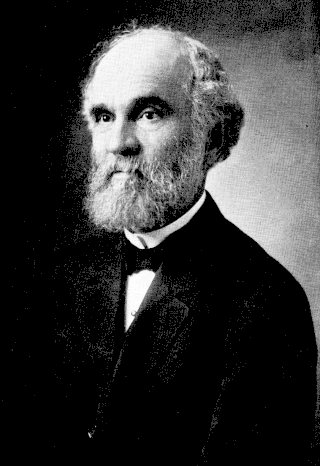
Winslow Upton was an American astronomer. He published extensively on the subject of meteorology.
Carberry is a surname. Notable people with the surname include:
Eustace B. Nifkin is a fictional student and tradition at the SUNY College of Environmental Science and Forestry. Nifkin first appeared on the campus of the SUNY College of Environmental Science and Forestry in the 1940s.
Mayo Dyer Hersey was an American engineer, physicist at the National Bureau of Standards and other government agencies, and Professor of Engineering at Brown University. He received the 1957 ASME Medal, and the first Mayo D. Hersey award in 1965.
Brown University is a private research university in Providence, Rhode Island. Like other members of the Ivy League, it is known for prestige, academic rigor and selective undergraduate admissions process. Among its peers, Brown is noted for a culture of campus activism and longstanding commitment to academic and intellectual freedom exemplified by its Open Curriculum and course "shopping period." The university has been described as the "progressive Ivy," "hip Ivy," and "creative Ivy."
